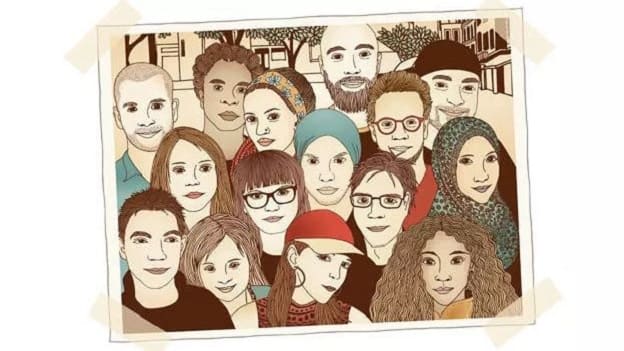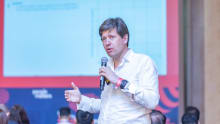Here comes Gen Z: And you thought millennials were difficult!

TechHR Singapore 2019 Read similar articles

The world of work seems to be at the end of the alphabet and running out of letters to segregate and define the newest demographic cohort that organizations must prepare for. Gen Z is a generational cluster roughly defined by the birth years of mid-1990s to mid-2000s. These are individuals who are digital natives, most of them having grown up around and being dependent on technology.
Organizations today need to ascertain what to expect from these upcoming minions of disruption. This would enable them to prepare better to make the most of all the potential that they come with. According to Forbes (2015), Gen Z is a larger population than either baby boomers or millennials forming 25% of the US population. More recent analysis suggests that Gen Z will make up 32 per cent of the global population this year.
Steering through stereotypes
With a widening generation span at work, it would be unwise to stereotype closely succeeding generations as the same. While every generation is a lot more than the labels that categorize it, Gen Z too has a few distinct differences with the millennial generation:
Fickle focus v/s multi-tasking mastery: The world of continuous updates seems to have affected Z’ers more than millennials since the former are reported to have much less focus. Having grown up with counter-concentration apps like Snapchat and Vine, while they have a rather limited attention span, they are master multi-taskers. This is probably the upside to being used to multiple, simultaneous distractions. At work, this would translate to a group of employees who lack continued focus on single tasks, need constant stimulation and have a potential to juggle projects.
Not just in for the money: Growing up during the recession taught millennials to be cautious about money, to look out for good deals and make quite a few decisions based on financial implications. Unlike millennials, Z’ers are coming of age at a time that is much more financially stable. Thus, they are not as easily baited by discount-based advertisements. This characteristic might also be the reason why they demand different recruitment strategies than simply using big pay packages as lures. Financial hikes could also, therefore, fail to be the right bait for motivation on the job and thus organizations need to look at motivation beyond carrots.
Entrepreneurs with an early start: Having discovered the convenience of online courses for higher education, Gen Z is more than willing to go straight in for job experience rather than following the traditional route and timelines for higher education. Thus, there will be an influx of late-teens who mean business, come armed with innovative ideas and are eager to gain industry experience. Moreover, being used to networking in a high-demand, high-tech world, Z’ers have a more entrepreneurial mindset and love to truly own their work. They are also a lot more global-focused than their predecessors and being deeply individualistic, they seek uniqueness in all their endeavours.
Keeping up with Z’ers at work
Marcie Merriman, Executive Director of Growth Strategy at Ernst & Young has been quoted stating that, “When it doesn’t get there that fast they think something’s wrong. They expect businesses, brands and retailers to be loyal to them. If they don’t feel appreciated, they’re going to move on. It’s not about them being loyal to the business.”
Organizations are therefore looking at a revamp in many people processes and business structures to make the most all the potential that Gen Z is to come with. Leaders, for example, have to understand that there would need to be an increase in one-on-one interaction, more positive relationships and cliques at work because that is what Gen Z looks for. Feedback channels have to be open and allow frequent communication. Just as organizations have had to rethink their marketing strategies in order to attract the Gen Z segment, companies have to do the same while branding themselves and their jobs to attract and retain the best from this new wave of young adults.
Whether you call them Post-Millennials, the iGeneration, Founders, Plurals, or the Homeland Generation, the issue is not so much in nomenclature as it is in understanding how to truly tap into their potential. As with any trend or new population cohort that surges forth, there is sure to be mush written, said and predicted about Gen Z but what organizations need to focus on is translating all the talk into action.
To know more about how to attract and retain these technological natives who are used to a fast-paced, digitally innovative and disruption-driven world, do attend TechHR Singapore by People Matters on the 28th of February 2019 at The Marina Bay Sands, Singapore. Register now!





